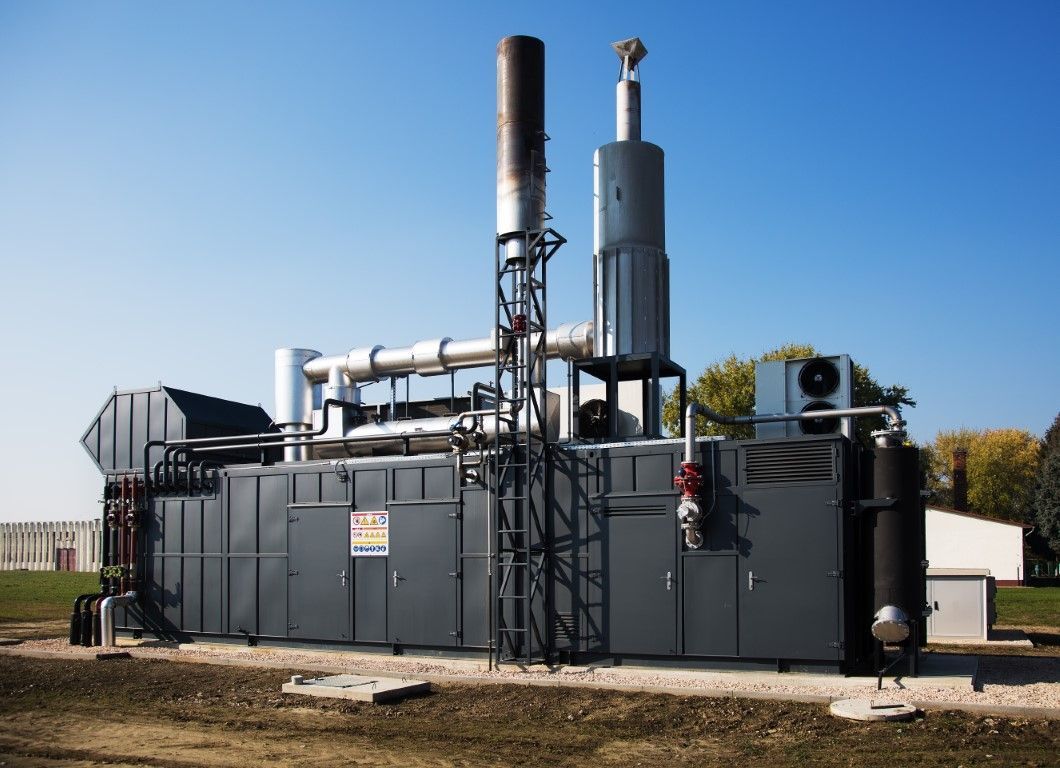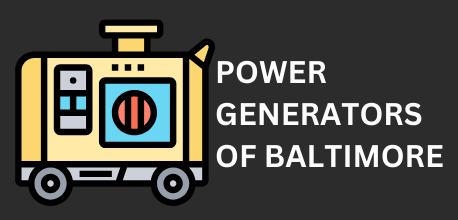A commercial generator is a robust and reliable machine designed to supply power to businesses and large facilities during outages or power interruptions. Unlike smaller residential generators, commercial generators are built to handle higher power loads and support more extensive electrical systems. They function by converting mechanical energy into electrical energy, ensuring that essential operations and equipment remain powered even when the main power source fails.
Differences Between Commercial and Residential Generators
The primary differences between commercial and residential generators lie in their size, capacity, and intended use. Residential generators are typically smaller, with lower power output, suited for home use to back up essential appliances during a power outage. In contrast, commercial generators are significantly larger and can deliver much higher power levels to support various business needs, from office buildings to manufacturing plants. Commercial generators are also designed for more extended and frequent use, providing continuous power for critical systems in a business environment.
Typical Applications in Various Industries
Commercial generators serve a wide range of applications across different industries. In healthcare, they ensure that hospitals and clinics remain operational, providing power to life-support equipment and other critical systems. In the hospitality sector, hotels and restaurants use them to maintain services and avoid disruptions during power outages. Manufacturing plants rely on commercial generators to keep production lines running smoothly. Additionally, data centers use them to protect valuable data and maintain server operations. The versatility of commercial generators makes them essential for any industry that cannot afford to experience power disruptions.
Importance of Commercial Generators for Businesses
For businesses, having a reliable power backup system is crucial. Commercial generators help avoid downtime, which can lead to loss of revenue and productivity. They ensure that operations continue seamlessly during power outages, protecting valuable equipment and data. By preventing disruptions, businesses can maintain customer satisfaction and uphold their reputation. Moreover, commercial generators can provide peace of mind, knowing that essential services will not be interrupted regardless of external power issues.

Maintenance and Upkeep
Regular maintenance and upkeep are vital to ensure that commercial generators function optimally when needed. This includes routine inspections, checking fuel levels, changing oil and filters, and testing the system under load. Proper maintenance helps identify potential issues before they become significant problems, ensuring that the generator is always ready to perform during an outage. Following a scheduled maintenance plan can extend the lifespan of the generator and enhance its reliability.
Choosing the Right Commercial Generator
Selecting the right commercial generator involves considering several factors. Businesses should evaluate their power needs based on the total load required, taking into account all essential systems and equipment. It is also important to consider the generator's fuel type, whether diesel, natural gas, or propane, and its capacity to handle peak loads. Consulting with a professional can help ensure that the chosen generator matches the business's specific requirements and operational demands.
If you are looking for a reliable
commercial generator in Baltimore, MD, our team is here to help. We offer expert advice, quality products, and professional installation services to ensure your business stays powered and protected. Contact us today to discuss your needs and find the perfect generator solution for your business.
Types of Commercial Generators
When it comes to maintaining business operations and ensuring reliability, having a dependable power source is crucial. Commercial generators provide a backup solution for businesses, helping to prevent disruptions caused by power outages. Understanding the different types of commercial generators can assist in selecting the right one for your specific needs. Below, we explore various types of commercial generators, their features, and their applications.
Choosing the right commercial generator involves evaluating your business's power needs, environmental considerations, and budget. Each type of generator offers distinct advantages and is suited for specific applications. Diesel generators provide robust, long-term power solutions, while natural gas and propane generators offer cleaner, quieter alternatives. Solar and hybrid generators present environmentally friendly options, ideal for businesses committed to sustainability. Gasoline generators are practical for smaller, temporary needs. By understanding these types, you can select a generator that best aligns with your commercial power requirements and operational goals.
Crucial Aspects to Evaluate When Choosing a Commercial Generator
Choosing the right commercial generator is crucial for ensuring your business operations run smoothly during power outages or when additional power is needed. Commercial generators come in various sizes and types, each with unique features suited for different needs. This guide will help you understand the key features to consider when selecting the right generator for your business.
Power Capacity
The most critical factor in choosing a commercial generator is determining the power capacity required for your business. This is usually measured in kilowatts (kW) or megawatts (MW). Power capacity must be sufficient to handle your business’s peak load demands without strain. To assess your power needs:
- Calculate the total wattage of all equipment and systems that need backup power.
- Consider both continuous and emergency power requirements.
- Factor in any future expansion plans that might increase power demand.
Types of Generators
Generators come in different capacities, from small portable units to large stationary systems. For most commercial uses, especially those in industries like healthcare, data centers, or manufacturing, larger stationary generators are typically needed due to their higher power outputs and reliability.
Fuel Type
Commercial generators can run on various fuel types, each with its pros and cons:
- Diesel: Popular due to its high energy content and efficiency. Diesel generators are known for their durability and are suitable for long-term use. However, they require regular maintenance and have higher emissions.
- Natural Gas: Cleaner-burning and more environmentally friendly than diesel. Natural gas generators are often used for their lower operational costs and reduced emissions. They also offer a continuous supply of fuel if connected to a municipal gas line.
- Propane: Another clean option, propane generators are suitable for areas where natural gas is unavailable. They have lower emissions than diesel but can be more expensive to operate.
- Dual-Fuel: Some generators offer the flexibility of using two types of fuel. This can be advantageous for businesses needing flexibility or dealing with varying fuel availability.
Fuel Storage and Logistics
Consider the logistics of fuel storage and supply:
- Ensure there is adequate space for fuel storage tanks if needed.
- Evaluate the reliability and cost of fuel supply in your location.
- Consider backup fuel options and delivery schedules to prevent outages.
Runtime and Fuel Efficiency
Runtime is the duration a generator can operate on a full tank of fuel. Businesses that experience frequent or prolonged power outages should choose a generator with a longer runtime. Additionally, generators with larger fuel tanks or those that can be easily refueled are preferable for extended use.
Fuel Efficiency
Fuel efficiency impacts operational costs and environmental footprint. A generator with high fuel efficiency will use less fuel to generate the same amount of power, reducing overall expenses and emissions. Look for models with advanced fuel management systems or technologies designed to optimize fuel usage.
Noise Levels
Noise levels can be a concern, especially in urban or residential areas. Commercial generators can be noisy, and excessive noise may lead to compliance issues with local regulations or disrupt business operations.
Options for Reducing Noise
Enclosures: Many generators come with soundproof enclosures that reduce noise levels.
- Location: Install the generator in a location where noise will have minimal impact, such as away from customer areas or in a dedicated soundproof room.
- Maintenance: Regular maintenance ensures the generator runs smoothly and quietly.
Durability and Build Quality
A generator’s durability is crucial for long-term reliability. Look for generators constructed from high-quality materials that can withstand harsh environmental conditions. This includes:
- Frame Material: Steel or heavy-duty metals offer better durability.
- Weatherproofing: Ensure the generator is designed to operate in various weather conditions or has appropriate covers to protect it.
Maintenance Requirements
Regular maintenance is essential to keep the generator in good working condition. Choose models with easily accessible components for routine checks and repairs. Consider generators with automatic diagnostic systems that can alert you to potential issues before they become significant problems.
Ease of Use and Integration
Modern generators come with advanced control systems that make operation easier. Look for features like:
- Automatic Start: Ensures the generator starts up automatically during a power outage.
- Remote Monitoring: Allows you to monitor the generator’s performance and status from a remote location.
Integration with Existing Systems
Ensure that the generator can integrate seamlessly with your existing electrical systems. This might include automatic transfer switches (ATS) that switch the power source from the grid to the generator without manual intervention.
Warranty and Support
A good warranty can save on repair costs and provide peace of mind. Check the warranty coverage offered by the manufacturer and ensure it includes parts, labor, and on-site service if needed.
Manufacturer Support
Reliable customer support is essential for addressing any issues or questions about your generator. Choose a manufacturer with a reputation for excellent customer service and a network of authorized service providers.

Selecting the right commercial generator involves evaluating several key features, including power capacity, fuel type, runtime, noise levels, durability, ease of use, and warranty. By carefully considering these factors, you can choose a generator that meets your business needs, ensures reliable operation during power outages, and provides long-term value. Whether you’re looking for a generator for a data center, healthcare facility, or any other commercial application, understanding these features will help you make an informed decision and invest in a generator that supports your business’s continuity and success.
